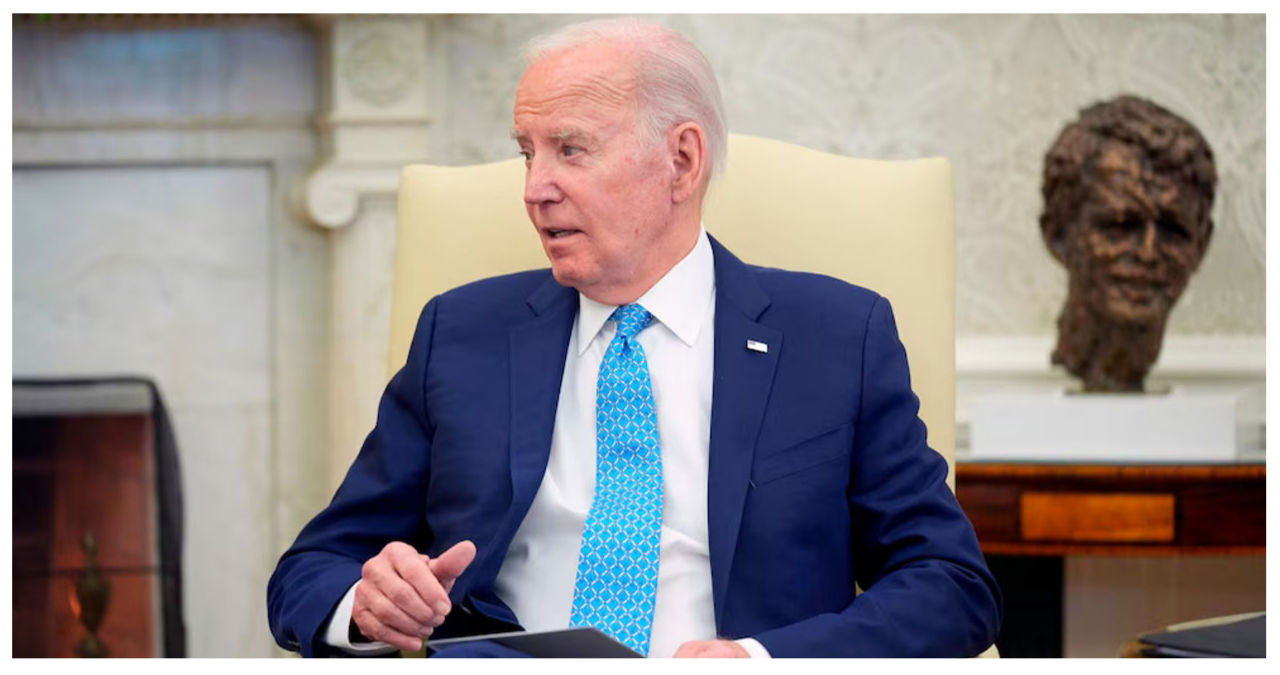President Joe Biden highlighted his administration’s recent initiative to significantly reduce credit card late fees, a step that is projected to save families a total of $10 billion annually.
The Consumer Financial Protection Bureau has recently implemented a new rule, resulting in a significant reduction in the usual credit card late fee. Under this rule, the late fee will now be reduced to a mere $8, a substantial decrease from its previous amount of $32.
During a meeting with his Competition Council, President Biden emphasized the significance of saving money for millions of Americans who usually incur late fees. He highlighted that, on average, these individuals can save approximately $220 per year, which amounts to a substantial sum.
According to him, banks are making a significant profit by charging late fees, which is five times more than the actual cost of collecting late payments. This practice allows them to increase their profit margins.
“In a statement, CFPB Director Rohit Chopra expressed that today’s rule marks the end of an era where credit card companies could use inflation as an excuse to increase fees and maximize their profits.
The Consumer Financial Protection Bureau (CFPB) has taken action to address a loophole in the CARD Act, a federal law that previously enabled credit card issuers to impose escalating fees on customers for late payments. These fees could reach as high as $41 over time. However, with the new rule in place, the CFPB has set a maximum cap of $8 on late payment charges. This move aims to protect consumers from excessive fees and promote fair practices in the credit card industry.
Card issuers would no longer have the ability to automatically increase fees based on inflation.
The rule has faced opposition from industry groups representing big banks and credit card issuers, who argue that it may compel them to increase the interest rates they impose on consumers.
According to a statement from the Consumer Bankers Association, the policy goals of the rule are primarily focused on consumer redistribution rather than consumer protection.
“The final rule issued today is deeply flawed and will have detrimental effects on consumers. Not only will it reduce competition and drive up the cost of credit, but it will also lead to more late payments, increased debt, lower credit scores, and limited access to credit for those who need it the most,” stated Rob Nichols, President and CEO of the American Bankers Association. Nichols further criticized the Consumer Financial Protection Bureau’s decision to cap credit card late fees at a level significantly below the actual costs incurred by banks. This move will compel card issuers to tighten standards for new accounts, reduce credit lines, and raise APRs for all consumers, even those who consistently make timely payments.”
The rule of the CFPB is set to be enforced in mid-May and will be applicable to issuers who have over 1 million open accounts.
According to officials from the Biden administration, American households are charged a staggering $14 billion in credit card late fees annually, with the majority of these fees being attributed to a small number of large banks.
In an effort to reduce costs and promote his economic policies as advantageous to Americans before the upcoming election, Biden emphasized the rule, along with several other measures he is implementing.
The administration’s actions on “junk fees” are estimated to save Americans over $20 billion annually, according to a recent report from the Council of Economic Advisers.
In addition, he has unveiled the introduction of a fresh “Strike Force” aimed at tackling unjust and illegal practices that contribute to inflated prices.
The “Strike Force” aims to address practices that drive up prices for Americans by targeting behavior that is anti-competitive, unfair, deceptive, or fraudulent in the business sector. It will specifically focus on areas such as prescription drugs and healthcare, food and grocery, housing, and financial services.
The Competition Council is taking action against poultry and meat processors. They have recently implemented a new rule to safeguard the interests of farmers and ranchers and foster competition in agricultural markets.
Internet providers are also addressing the issue of “bulk billing”. They are focusing on a proposed rule by the Federal Communications Commission that aims to prohibit the practice of landlords charging all occupants or employees of a building for a specific internet, cable, or satellite service, regardless of whether they actually want or have opted for it.
Just two days before delivering his State of the Union address, President Biden is making a significant move to emphasize the administration’s efforts to save Americans money. During his speech, he is expected to outline the progress made in reducing everyday expenses for the American people.



